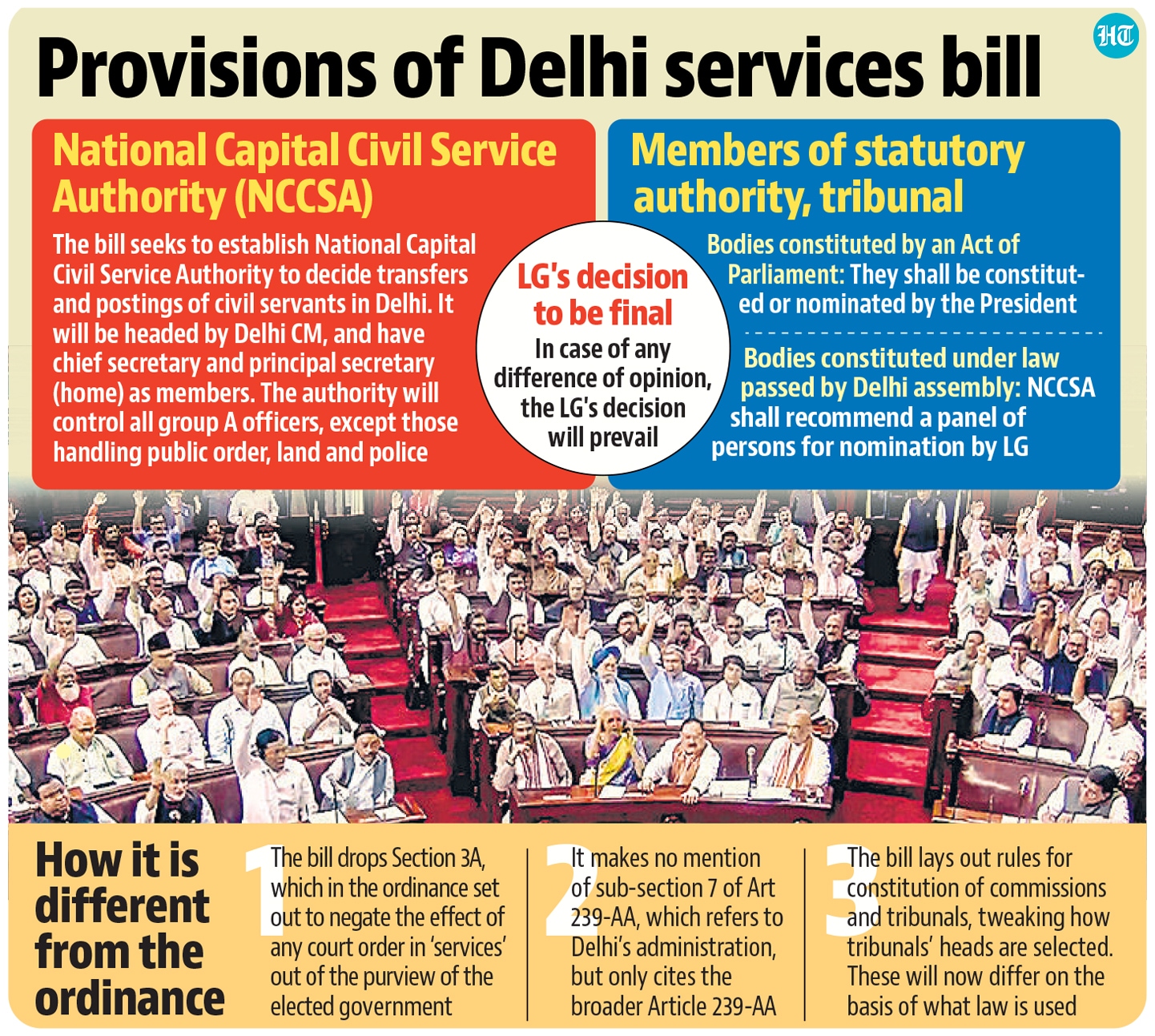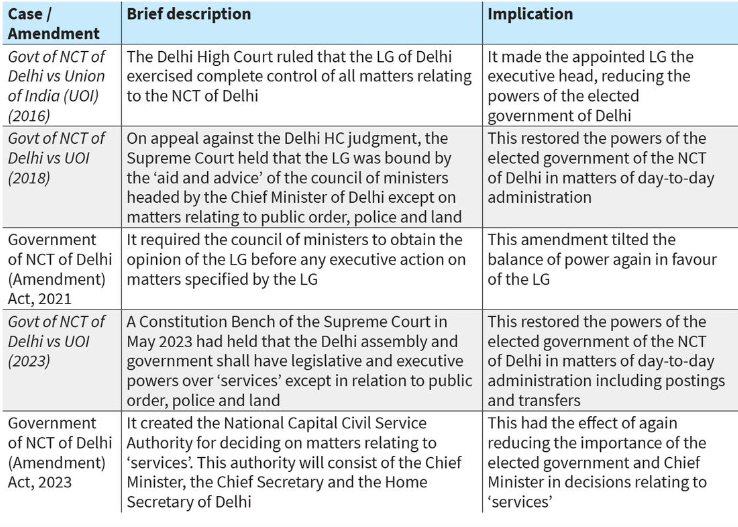7667766266
enquiry@shankarias.in
The Supreme Court has ruled that the Lieutenant Governor (LG) of the National Capital Territory (NCT) of Delhi can nominate 10 aldermen to the Municipal Corporation of Delhi (MCD) on his own without the aid and advice of its council of ministers.
In 1989, the Balakrishnan Committee was set up by the Union Government recommended that Delhi should continue to remain a Union Territory. It also suggested to assign a special status along with institution of a legislative assembly for Delhi.
|
69th Constitutional Amendment , 1991 |
|

